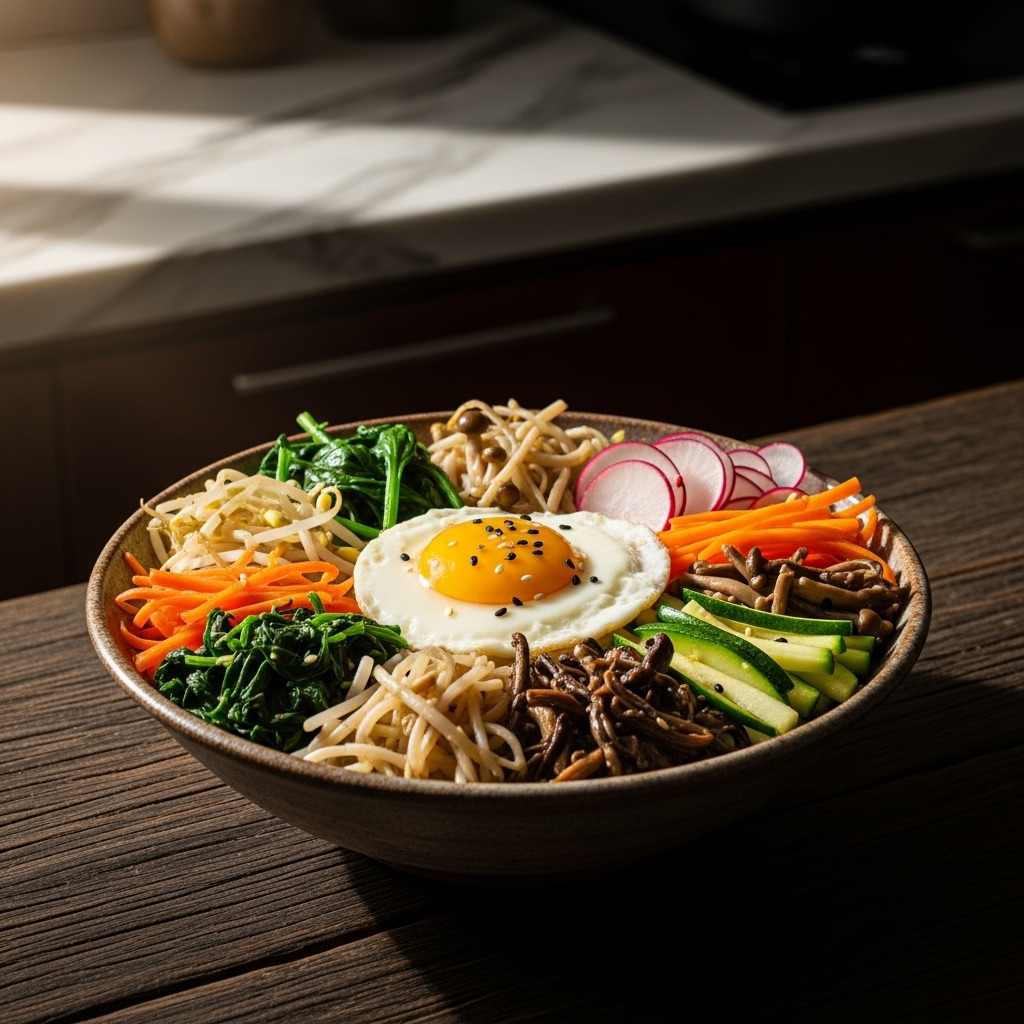
Vegetarian Korean Bibimbap Bowl: A Sumptuous Fusion of Mouthfeel, Aroma & Visual Appeal
Discover a delicious and easy-to-prepare vegetarian Korean bibimbap recipe that combines mouthwatering flavors and textures with stunning visual appeal. This fusion dish can be prepared in less than 30 minutes, making it perfect for busy weeknights or special occasions alike.
Allergens
Soy (soy sauce)
Ingredients
- 2 cups cooked short
- grain white rice 1 cup julienned carrots 1 cup sliced cucumber 1 cup sautéed spinach 1 cup cooked and cooled quinoa 1/2 cup sliced mushrooms 1/2 cup bean sprouts 1/4 cup sliced green onions 1/4 cup toasted sesame seeds 2 tbsp gochujang (Korean chili paste) 2 tbsp soy sauce 1 tbsp sugar 1 tbsp rice vinegar 1 tbsp vegetable oil Salt and pepper, to taste
Instructions
- In a large mixing bowl, combine the gochujang, soy sauce, sugar, rice vinegar, salt, and pepper. Mix well until all ingredients are fully incorporated.
- Add the julienned carrots, sliced cucumber, sautéed spinach, cooked and cooled quinoa, sliced mushrooms, bean sprouts, and green onions to the sauce mixture. Toss gently to coat all the vegetables with the sauce.
- Heat a large skillet over medium heat. Add 1 tablespoon of vegetable oil and swirl it around the pan. Carefully pour in the coated vegetables, spreading them evenly across the pan. Cook for about 2 minutes until heated through.
- To assemble the bibimbap bowl, place a scoop of cooked white rice at the bottom of each serving dish. Top the rice with an equal portion of the sautéed mixed vegetables. Sprinkle sesame seeds over the top and garnish with additional green onions if desired.
Chef’s Insight
The key to an excellent bibimbap is in the balance of flavors and textures. Don't be afraid to adjust the seasonings according to your preference.
Notes
This recipe is vegetarian and can be made gluten-free with proper substitutions.
